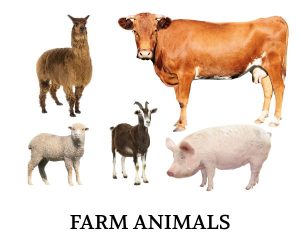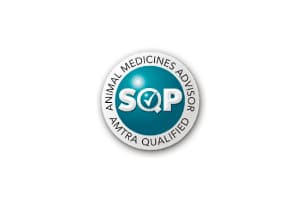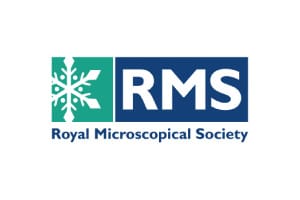Faecal Egg Count (FEC) for Sheep and other Farm Animals
A Faecal Egg Count (FEC) is a diagnostic test used to determine the number of parasite eggs present in a sample of faeces. Wormcount.com provides Faecal Egg Count (FEC) screens giving you a detailed insight into the internal parasitic health of your animals including gastro-intestinal worms, lungworms, protozoans and liver fluke. Whether you have a smallholding with a limited amount of livestock, you keep some ‘pet’ farm animals, or whether you operate a large scale working farm, we have several screens available which will help you with your parasite control regime.
Our Faecal Egg Count (FEC) screens are suitable for sheep and other farm animals such as cows and pigs. Our diagnostic tests accurately determine the number of parasite eggs in sheep faeces and other farm animals. Ideal for smallholders, pet farm animal keepers, and large-scale farms. Keep on top of your parasite control regime with our FEC tests for sheep and other farm animals.
All farm animals are capable of picking up parasites which may make them seriously ill and can even be fatal. Some of these parasites can also be passed on to humans either through contact via faecal matter, their contaminated environment, or via their meat.
Wormcount.com offers a fast, reliable and cost-effective way of determining your animals’ worm burden in order to confirm that their current worming programme is effective and that localised resistance has not developed. The historical overuse of routine chemical wormers has led to national resistance issues within some chemical groups. Livestock owners are often being encouraged by their respective regulatory bodies to undertake worm counting and targeted worming rather than a blanket worming approach, with initiatives such as SCOPS, COWS and RUMA.
We offer herd/flock sampling and screening for groups of animals and we also offer individual screens for animals kept alone, or animals who are of particular concern separate from the rest of the group. Additional information can be found in the drop down section below.

Further Information
Wormcount.com gives you direct access to a fast, professional veterinary laboratory without the need for a referral from your Vet.
Our laboratory has been purpose designed with bespoke equipment and facilities, allowing us to provide a professional and high-quality service direct to the public and veterinary practices. All of our analysts undergo rigorous training before they undertake any testing. Even once approved for testing, they undergo regular ‘blind’ spot checks and ongoing external personal development sessions to keep them at the forefront of the industry throughout their careers. Our strict bio-security and method procedures ensure safe, repeatable and accurate results from every sample as they transit through the lab.
We have an excellent customer service reputation and our administration and support teams are very welcoming of any queries you have or support you require at any stage of the process. Once you have your results, we will point you in the direction of your vet or local feed merchant (as necessary) for them to prescribe and supply the relevant medicines.
- All screens are undertaken within our own laboratory by our highly trained analysts. Screens are undertaken on a sample of your animal’s faeces that you send to us in one of our specially designed collection kits
- A Faecal Egg Count provides a quantification of the number of worm eggs in your animal’s faeces (poo) which is therefore an indication of the number of adult female worms in your animal’s gut.
- Each species of worm egg is identified and, where appropriate, quantified to give an indication of the level of infestation.
- Worm egg screens also detect Eimeria and Isospora coccidia as standard.
- The worm egg screen results are presented in an email report as ‘eggs per gram’ (epg) of faeces. There is an easy to understand key on your Wormcount.com result sheet.
Some worms can appear as mature, egg-laying adults within as few as 16 days from being picked up as eggs or larvae by your animal. Regular screening is critical to knowing what is happening within your animals and allowing targeted treatment in a timely manner.
For general cycle worm egg screens:
- SCOPS (Sustainable Control of Parasites in Sheep) guidance recommends screens are undertaken every 2-3 weeks during the grazing season.
- COWS (Control of Worms Sustainably- beef and dairy cattle) guidance recommends screens are undertaken 2 months after turnout and at least again in the middle and end of the grazing season.
For worm egg screens to check if the treatment has been effective:
- The duration between treatments and retesting varies depending on the chemical group used. We recommend you refer to the product guidance or discuss this with your vet.
For liver fluke screens:
- 12 weeks before turnout and regularly during the grazing season or if liver fluke is suspected based on symptoms.
All of the above are broad and generic guidelines only and we recommend that you discuss the specific testing and treatment cycle with your vet.
Pool, flock or herd sampling is appropriate where animals of the same species, age and health live or graze together. If you are particularly concerned about one individual, we would always recommend they are tested separately from the group.
We can test up to 10 animals (of the same species and ideally similar ages) within a pool sample. The sample is combined and homogenized in the lab and several sub-samples are tested. The results are then averaged and reported as one single group average value.
When collecting a pool sample, it is important to collect fresh faeces and ideally from a range of animals. We suggest that one way to achieve this is to get the animals contained in a corner or pen for approximately 15 minutes and then release them. Then collect up to 10 samples from 10 different faeces in this area. It is important to choose random samples and try not to be selective. Do not collect samples from a field/barn floor which have been lying on the ground for an unknown amount of time. Collection kits can be ordered from here.
Due to resistance to several chemical groups, wormers should only be used when absolutely necessary. Undertaking a worm egg screen allows you to decide whether treatment is required at that time, or to confirm whether your current worming programme is working. We recommend that you consult with your vet regarding the most appropriate wormer; showing them a copy of the lab results will enable them to advise on the best course of action at that time.
Liver fluke or “Fasciola hepatica” can affect all grazing animals. Liver fluke is picked up by the animal eating the Galba truncatula mud snail when grazing, typically in marshy/wet pasture in relatively warm conditions. Liver fluke is typically most prevalent in summer and autumn months.
Symptoms can include anaemia, weight loss, chronic diarrhoea and raised liver enzymes. Due to the irregular shedding pattern of liver flukes, a negative faecal screen is not necessarily definitive. Faecal screens for liver fluke are very useful in certain circumstances but if you consider your animals to be exhibiting symptoms of liver fluke, you should consult your vet to arrange a blood test.

Testimonials






